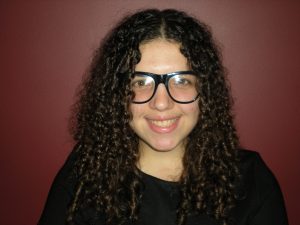This piece was contributed by Meytal Chernoff, a CAMERA Fellow at Washington University in St. Louis. It was republished on May 25th in The Algemeiner.
During the Modern Language Association’s meeting of the Delegate Assembly this past April, the MLA voted to approve Resolution 2014-1. This new resolution passed in a vote of 60 to 53 and urges the State Department to “contest Israel’s denial of entry to the West Bank by US academics” and to support the boycott of Israel, which would mean that the United States stops buying Israeli goods and that the American Academic community would cut off all communication with Israeli academic institutions. The MLA’s decision, based on documented falsehoods, serves along with the recent actions of the American Studies Association in setting a dangerous precedent within the realm of academic freedom.

Over winter break, the students of Washington University received an email from Chancellor Wrighton stating the refusal of this university to participate in the academic boycott of Israel. He wrote that “a boycott of academic institutions directly violates academic freedom.” The term “academic freedom” is defined as the right of teachers and students to teach, express their ideas, and discuss knowledge without religious, political, or institutional restriction. When faced with this definition it is clear that the boycott of Israeli academic institutions violates this right to teaching and discussing knowledge by placing a political and institutional restriction on academia from a particular region. The right to this freedom is currently under attack from the ASA and as resolution 2014-1 moves on to the MLA Executive Council, its position grows even more precarious.
What makes this situation sadder is the false foundations upon which the resolution and boycott are built, as well as the thought of all we stand to lose, should these movements gain power. Israel does not place any restrictions on the entrance of academics or on partnerships between foreign academics and Palestinian institutions. Occasionally, there are issues of security that make travel problematic for all people, including academics. For example, the security fence and checkpoints lengthen the daily commute for many individuals. However, since the erecting of the fence, terrorist attacks in Israel have seen over an 80% reduction. The right to life, and life free from the threat of violence makes those security measures necessary.
Additionally, Israeli universities remain on the forefront of research in medicine, technology, nano-science, and agriculture, to name just a few. To cut students off from this knowledge would be a grave loss, as well as a violation of academic freedom for students across the country. Also, by restriction access to Israeli universities, the MLA and ASA hurt the many Palestinian students who attend these universities. The boycott claims to fight for the rights of the Palestinian people, and yet their actions accomplish the opposite. Palestinian President Mahmoud Abbas has spoken out against the boycott of Israel saying that “we have relations with Israel, we have mutual recognition of Israel.”
An amazing factor of participation in academia on the university level is the ability to share ideas, debate different opinions, and hear sides of an argument that you may never have considered. As paragons of academia, one would hope that the MLA and ASA would see the beauty of this free discussion and encourage it rather than seeking to silence the voices from one particular country. At the MLA conference, the resolution and discussion of Israel included only speakers in favor of the boycott. The other side was given no voice.
